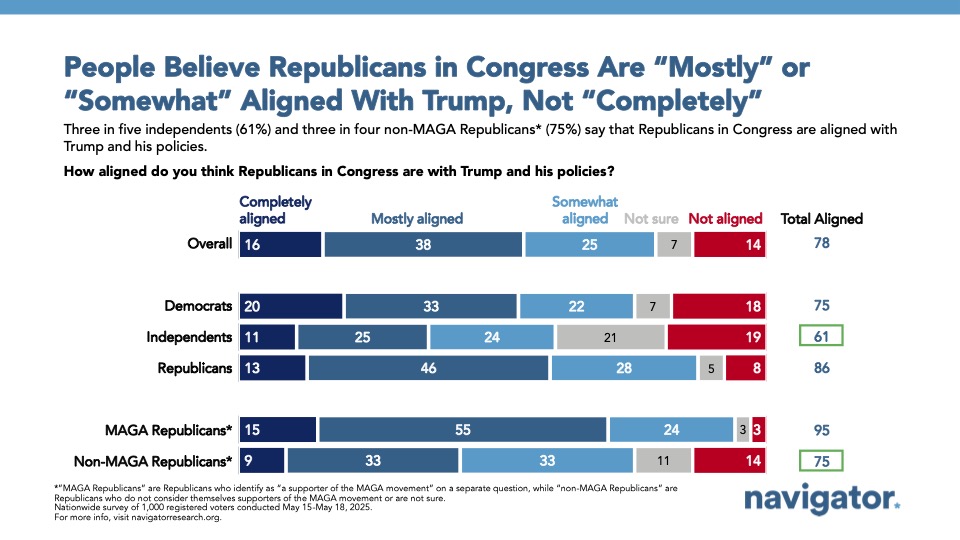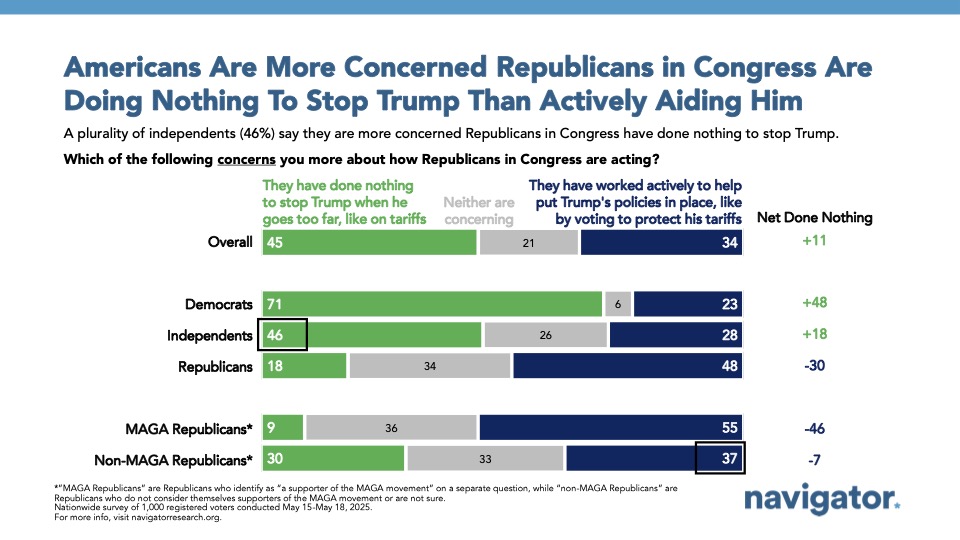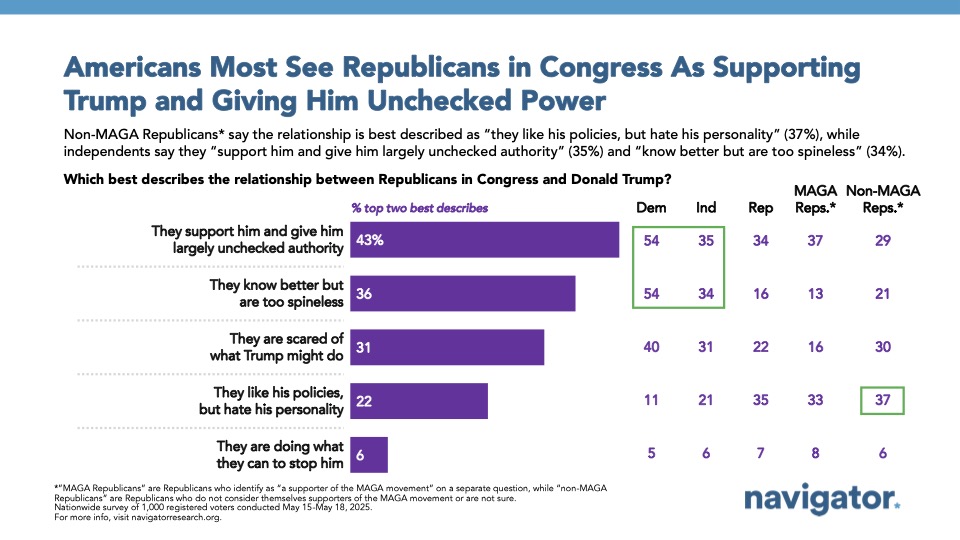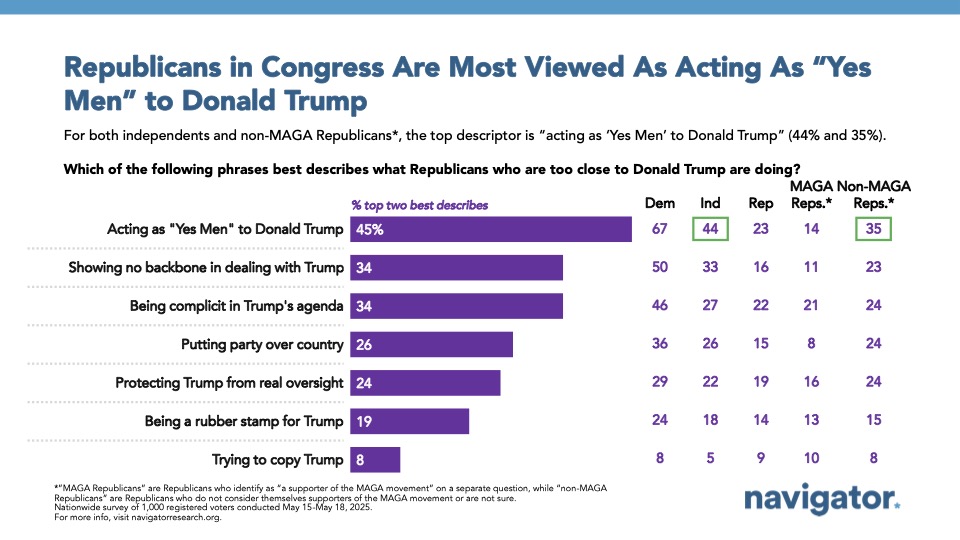Poll: Republicans in Congress
This Navigator Research report covers the latest perceptions of Republicans in Congress’ and their alignment with the Trump administration.
Americans don’t view Republicans in Congress as strategic partners in advancing the Trump administration’s agenda. Instead, they see Congressional Republicans as a necessary formality — the rubber stamp for his ideas. 78 percent believe Republicans in Congress are aligned with Donald Trump and his policies. Yet, even among those deeply critical of Congressional Republicans, the perception is less that they are driving the agenda and more that they are passive participants in Trump’s political project.

When asked what concerns them more — Republicans in Congress doing nothing to stop Trump when he goes too far, such as on tariffs, or Republicans actively helping implement his policies — voters overwhelmingly expressed concern over Republican inaction. 45 percent say Republicans doing nothing to stop Trump is more concerning, including 71 percent of Democrats and 46 percent of Independents. By comparison, only 34 percent say Republicans actively helping implement his policies is more concerning.
Only Republican voters see Republicans in Congress as Trump’s strategic partners. Nonetheless, even among Republican voters, just 48 percent believe Republicans in Congress are actively working to help Trump.

This isn’t just seen as complacency — it’s seen as willful. Large shares of Democrats and Independents believe Republicans in Congress know better but still allow Trump to govern without checks on his power. 35 percent of Independents and 34 percent of Republicans say Republicans in Congress support Trump and largely give him unchecked authority. 36 percent of Americans overall say Republicans in Congress “know better but are too spineless.” Republicans who are close to Trump are seen as “Yes men” and putting party over country.


About The Study
Global Strategy Group conducted a public opinion survey among a sample of 1,000 registered voters from May 15-May 18, 2025. 100 additional interviews were conducted among Hispanic voters. 76 additional interviews were conducted among Asian American and Pacific Islander voters. 100 additional interviews were conducted among African American voters. 100 additional interviews were conducted among independent voters. The survey was conducted online, recruiting respondents from an opt-in online panel vendor. Respondents were verified against a voter file and special care was taken to ensure the demographic composition of our sample matched that of the national registered voter population across a variety of demographic variables. The margin of error for the full sample at the 95 percent level of confidence is +/- 3.1 percentage points. The margin of error for subgroups varies and is higher.



